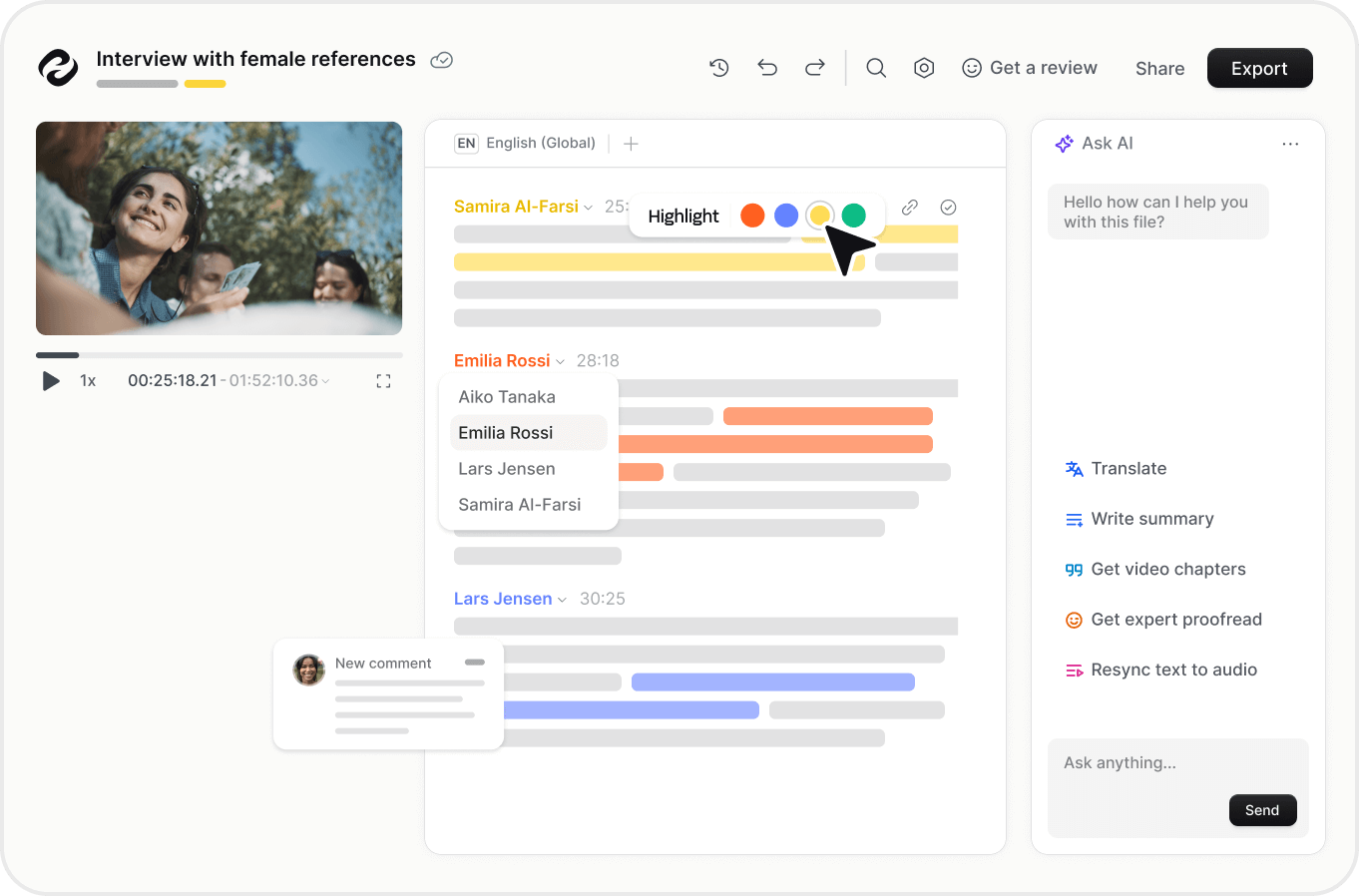1. Upload your recording.
With our uploader, you can import your file from anywhere, whether it's on your laptop, Google Drive, Youtube, or Dropbox. The first 10 minutes are free and there's no file limit.
Below is the list of popular languages we support for transcription and subtitles.
See all languages ▸ Get StartedWith our uploader, you can import your file from anywhere, whether it's on your laptop, Google Drive, Youtube, or Dropbox. The first 10 minutes are free and there's no file limit.
We support more than 120 languages, dialects, and accents.
Our automatic transcription software is lightning fast and 85% accurate. With our human service, your transcript will be transcribed and proofread by an expert and native speaker and delivered with 99% accuracy.
Our automatic transcription software will convert your file to text in just a few minutes (depending on the length of your file). If you select our human service, your transcript will be ready within 24 hours.
You can export to TXT, DOCX, PDF, HTML, and many more. It's that easy to have your academic materials transcribed and get your work done quicker!

On average, manually transcribing audio to text takes about four hours for every hour of audio. With HappyScribe, you'll get it done in minutes!
HappyScribe will transcribe files of any length. There is no file size limit, meaning you don't have to trim your interviews and submit multiple files. We also accept 45+ file formats including AIFF, M4A, MP3, MP4, WAV, and WMA, making podcast audio transcription quick and easy.
Be it one person or one hundred people, we will transcribe everything on your audio file. Additionally, our speech recognition can detect when the speaker has changed.
Discover more